The Spring 2024 aerospace graduates have plans to pursue graduate degrees, start careers in industry, teach the next generation, and everything in between.
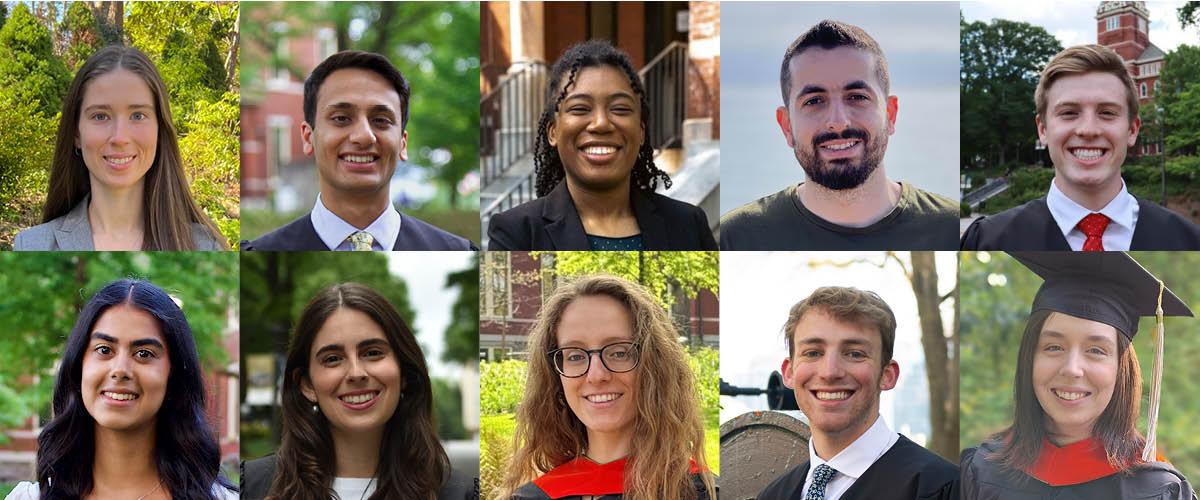
(text and background only visible when logged in)
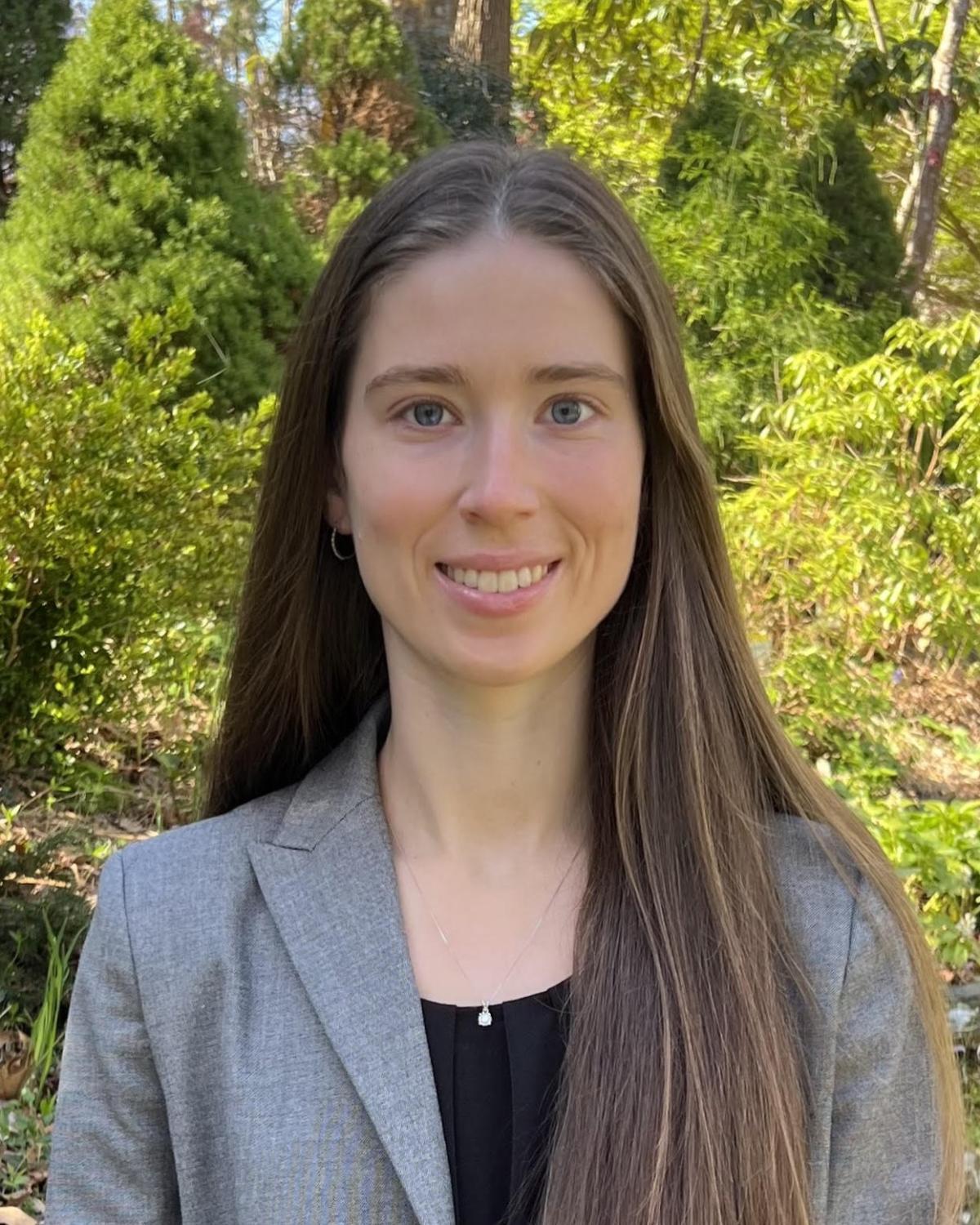
Theresa Bender, Ph.D. A.E. 2024
What is your next adventure?
This summer I will be moving to the DC area to continue my work at NASA Goddard Space Flight Center on the Lunar Communications Relay and Navigation Systems (LCRNS). LCRNS will provide communication and navigation services for the Artemis program and other cislunar spacecraft.
What about your next adventure are you most looking forward to?
I’m thrilled about the prospect of continuing to address the complex and interesting problems that are associated with lunar constellation design. There’s a great opportunity to apply my systems engineering, optimization, and flight dynamics skills to help tackle these challenges. We haven’t had a constellation around the moon yet, so there is still much to figure out. I have enjoyed working on those challenges, and there is a great deal to do before launch.
Did you have any previous co-op, internship, or research experience in this area?
During my undergraduate and graduate studies, I had opportunities to partake in a lot of exciting internships and research projects. I’ve been working on LCRNS as a NASA Pathways Intern since January 2023, where I have helped design and evaluate proposed lunar constellations.
In Summer 2022, I gained valuable trajectory design and optimization experience through an internship that I did for Jacobs Technology at NASA Johnson Space Center. I developed Artemis III abort trajectories for the Orion spacecraft, which was really the first time that I learned how to design trajectories. I had the opportunity to learn Copernicus, which is the trajectory design software that they primarily use at Johnson.
During my undergraduate studies, I interned at NASA Langley (2017, 2018) and NASA Ames (2018) where I was exposed to a great deal of systems engineering work. At Langley, I worked in the Space Mission Analysis Branch to develop a conceptual design for a Mars surface architecture. At Ames, I helped size the spacecraft imagery and communication systems for NASA’s Advanced Composite Solar Sail System (ACS3) which launched on April 23, 2024.
I also worked on various research projects in the Aerospace Systems Design Lab (ASDL) pertaining to satellite constellation design, which is very similar to what I'm doing now, as well as space habitat sizing.
How did your educational experience at Georgia Tech help you to achieve your goals?
I gained an incredible wealth of knowledge from my professors and peers here at Georgia Tech, which fostered my growth in this field and set me on a path for success for the years to come.
The intensity and rigor of the program in ASDL left me well-equipped to address complex problems that require creative solutions. Specifically, I learned how to identify pertinent research challenges, convey their importance to stakeholders, and develop cost-effective ways to manage them. This led me to become a more well-rounded engineer.
What advice would you give to an underclassman who would like to follow the same path?
Make an effort to explore new areas of research, even if they’re outside your comfort zone, and to wholeheartedly appreciate every opportunity that comes your way. There are great lessons and skills that can be learned in any situation.
I always wanted to work for NASA and be a part of human spaceflight, but it wasn’t initially clear to me how I would be a contributor. Ultimately, my internships and education helped me discover that systems engineering was my passion. Internships and research opportunities can lead you to develop specialized skills, which can help set you apart in your field.
It’s important to push the bounds of what you think you’re capable of and strive to bring yourself to new and exciting places so that you can face new and exciting challenges.
Ashish Cavale, AE 2024
What is your next adventure?
I'll be joining the University of Colorado Boulder in their Ph.D. program for Aerospace Engineering Sciences. It was my top choice, and I've been waiting forever to hear back. I'll be working as a graduate research assistant with Professor Daniel J. Scheeres in the Celestial and Spaceflight and Mechanics Lab. I will concentrate on planning theoretical concepts on asteroids, specifically rubble pile asteroids, and modeling the gravitational fields of asteroids that aren't one rock but maybe many rocks or rubble. If you're going to do missions to these asteroids, you have to model the gravity around the asteroids and you can't assume it's solid. There are different parts of it, so the gravity is going to be different.
What about your next adventure are you most looking forward to?
I’m looking forward to learning and working with the professors. Their work is top-notch, and I’ll gain a lot of experience in the field. I’m also looking forward to the new location in Boulder, Colorado. I’m really into hiking and outdoor activities like skiing and winter sports. Besides the exciting work, the outside activities will be really fun for me.
Did you have any previous co-op, internship, or research experience in this area?
After my freshman year in the summer of 2021, I interned at Analytical Graphics Inc. in Exton, Pennsylvania. The next summer, I worked at Ball Aerospace in Boulder, Colorado, and that actually piqued my interest in Colorado. Then I came back to Ball Aerospace in fall 2023. In the spring of 2023, I interned at Blue Origin in Kent, Washington. It was transformative because I worked with the autonomy team for New Glenn, which is their biggest rocket. It was this internship that made me realize that I didn't want to enter industry after graduating and that I wanted to pursue a doctorate. I've been studying control autonomy and applying that to spacecraft and missions. I hope that in my Ph.D., I can focus on that in terms of missions to asteroids.
How did your educational experience at Georgia Tech help you to achieve your goals?
My plan is to be a professor and my experience at Georgia Tech really played a significant role in that goal. One thing I'd like to highlight is the Yang Aero Maker Space. I appreciate that I've been able to work there since my second year and have had opportunities to mentor and teach other students in simple introductory projects and more complex ones as well and that was great.
Georgia Tech allows undergraduates to be official Teaching Assistants (TAs) for classes, which is amazing because I was able to TA for three semesters: twice for Multivariable Calculus and once for Differential Equations. I know that this helped shape my desire to earn a Ph.D. and teach.
I also worked with Professor Glenn Lightsey, in the Space Systems Design Lab in the mission operations center. They were just starting to prepare for missions like lunar flashlight. It was very exciting.
My opportunity to be involved in leadership and help other students has meant a lot to me as well. Through the GT American Institute for Aeronautics and Astronautics (AIAA) student branch, which I’m leading this year, we've been able to do some really amazing things like events that have increased interest in our organization and also exposed students to various industry and organization leaders. We were able to bring students to the conference this year in Florida. We usually send about eight people, but this year, we launched a major initiative to publicize it and debunk any misinformation, and we sent 56 people. We were a major portion of the conference for the whole Southeast of the United States. We won six out of the 15 awards, and I'm really proud of that. We're trying to make a sustainable precedent for next year by removing financial or academic obstacles. We sent so many first years. We strive to ensure everyone knows that it's available to them. It's not just for graduate students or seniors. So I think all of those experiences have led me to my next chapter.
What advice would you give to an underclassman who would like to follow the same path?
When entering Georgia Tech, be open, even if you have a passion. Be open to alternatives and things you don't know. There are probably lots of things that you don't know, and you should explore.
Don't be afraid to try something different. Go above and beyond if you want to do research. It may not be what you expect, but it could open a doorway. There are a lot of research opportunities for first years, and the best way to get those is reaching out to professors and friends. Reach out to professors you may be intimidated to talk to because they would love to talk to you, and they are nice and outgoing. It will never hurt you to reach out to people.
Join GT AIAA.
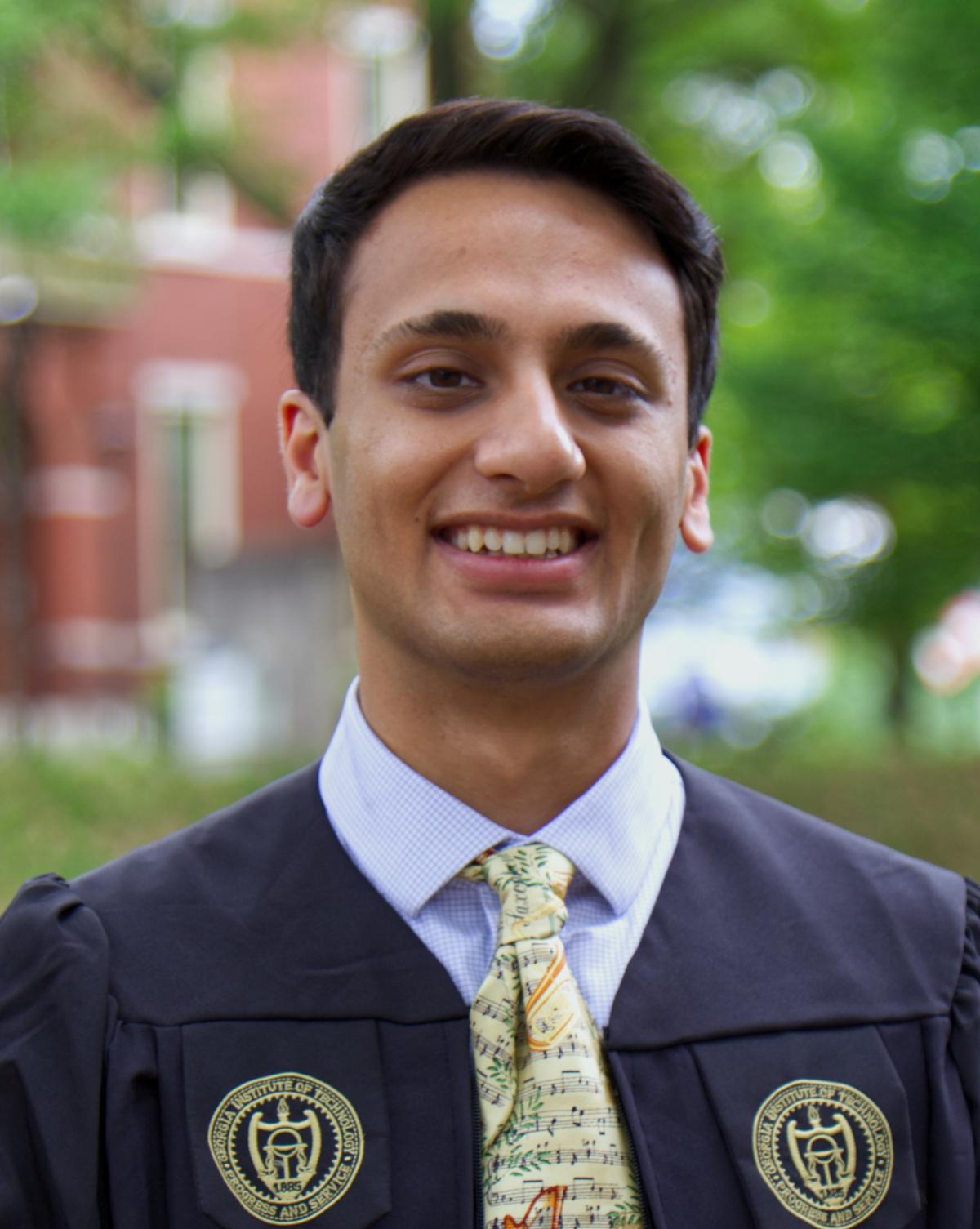
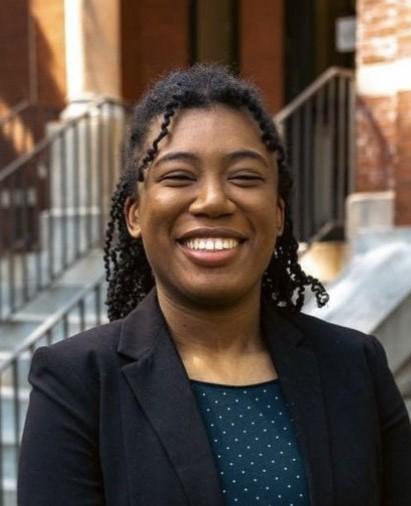
(text and background only visible when logged in)
Nyla Duhon, AE 2024
What is your next adventure?
In early August, I will start working at Northrop Grumman, in Iuka, Mississippi. I'll be working on manufacturing various vehicles. I can’t say too much about the vehicles because I have to get a security clearance for that, but it's a lot of space systems vehicles and spacecrafts which is very exciting. I will spend this summer, on vacation and with family before I start my new career.
What about your next adventure are you most looking forward to?
I'm looking forward to actually being on-site and to being in such an innovative and dynamic work environment, especially with a company such as Northrop, which has a great reputation. My new location puts me closer to family in Louisiana, so I’m happy about that as well.
Did you have any previous co-op, internship, or research experience in this area?
For the past three semesters, I’ve worked in the GTRI Lab Vertically Integrated Programs (VIP). VIP is multi-interdisciplinary, and we've been working on a lot of autonomous vehicles. We're basically working on these two model cars, and I'm the manufacturing and mechanical lead. I'm over all the building, 3D printing, and implementing SolidWorks that we have to do for those vehicles.
How did your educational experience at Georgia Tech help you to achieve your goals?
The challenging curriculum and rigor at Georgia Tech will help me at my new job, which I anticipate will be fast-paced. The job will be a two-year project with a team, and I had great opportunities to work on teams here at Georgia Tech, and I expect that will translate well in my new position.
Also, in the beginning of my sophomore year at Georgia Tech, I founded Fair Fight, a voter advocacy organization. Its parent company is called Fair Fight Action that was started by Stacey Abrams, in 2018 to promote fair elections. It was an effort that encouraged 1,000,000 voters to vote. Fair Fight is the college version of it, and we have a lot of communications with the parent company. We have representatives come and talk to the students, and we volunteer at places like polls or registration drives for students, which is great because, again, the new elections are coming up in a few months. It has been a passion project and one of my favorite things I accomplished at Georgia Tech.
What advice would you give to an underclassman who would like to follow the same path?
You're more than just the numbers, more than just the calculations, and more than just an engineer. Just being involved is essential. Find one thing you're passionate about and one thing in your major, and then do research and really get your feet wet. Discover what you are passionate about, like I did. If you don’t find it, create it. I founded my own organization.
Filippos Fotiadis, PhD AE
What is your next adventure?
I will be joining the Oden Institute for Computational Engineering & Sciences at University of Texas, Austin as a Postdoctoral researcher in the Fall of 2024. I will be doing research at the intersection of systems theory, control theory and machine learning.
What about your next adventure are you most looking forward to?
I am very much looking forward to meeting new people and discussing new ideas. While I have completely enjoyed the past five years at Georgia Tech in the Intelligent Cyber-Physical Systems (ICPS) lab, I believe that learning new perspectives on how different problems should be approached is vital to becoming a researcher that is able to think ``out of the box”. I am looking forward to meeting people that will challenge, rather than validate, my understanding on what is considered ``state-of-the-art”; to an environment that will reinforce, rather than acknowledge, my current understanding of what are the open problems in the field of systems and control. Of course, as a prospective postdoc, I am also excited to potentially being more involved in teaching as well as mentoring junior PhD students. Hopefully, the students will be excited, too!
Did you have any previous co-op, internship, or research experience in this area?
The scope of the research I carried out during my PhD started forming 6 years ago, while I was writing my undergraduate thesis in Greece. During that time, I printed out and read various papers in the general area of control theory and reinforcement learning, and this is how I eventually came across the work of my current advisor, Dr. Vamvoudakis. I subsequently emailed Dr. Vamvoudakis to ask him a few technical questions on his papers and, after a few months, he offered me a PhD position here at Georgia Tech.
During my PhD studies, I opted not to do any internships in favor of focusing fully on my current research topic. In this way, I have had the opportunity to expand my network by participating in 13 international conferences, and by collaborating with more than 30 researchers worldwide.
How did your educational experience at Georgia Tech help you to achieve your goals?
Georgia Tech has an extensive coursework on systems and control theory. These courses are naturally demanding in terms of time and effort required, however, they substantially helped me in being rigorous in my research and making progress faster. To put this into perspective, I estimate that about one third of my PhD thesis is solely owed to the knowledge I obtained from the outstanding course of Dr. Haddad on the analysis of Lyapunov and Riccati equations; an one-of-a-kind course that, arguably, only the Aerospace Engineering department at Georgia Tech is offering right now.
Of course, I could not do without mentioning that I was incredibly lucky to be advised by Dr. Vamvoudakis. He is a mentor that really pushed me to my limits, challenging me to learn much more than I was initially limiting myself to. Most importantly, he taught me that endurance and persistence are two of the most important qualities in the journey of achieving your goals.
What advice would you give to an underclassman who would like to follow the same path?
Do not be afraid to explore new opportunities and challenge your understanding of things. I think there is often a misconception that when you set off the PhD journey, you are supposed to already be kind of familiar with your field of study. This is simply not true. It is in fact the very purpose of the PhD to push you to learn stuff. So, when looking for research/PhD opportunities, do not be afraid to contact a professor if you believe that the scope of their research does not align well with your current domain of knowledge. In fact, I suggest you have the same mindset even after you receive your graduate degree.

(text and background only visible when logged in)
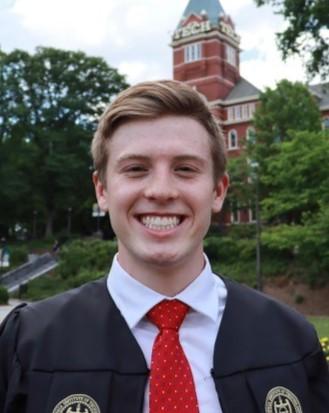
Taylor Hampson, AE 2024
What is your next adventure?
I will be researching nuclear thermal propulsion at MIT this fall for a master's degree. I received the NASA Space Technology Graduate Research Opportunities (NSTGRO) Fellowship that will cover my graduate education. I had to write a research proposal, and it was focused on nuclear thermal propulsion and that will be my research focus while pursuing my master's degree.
I also foresee a space start-up in the future, either starting one or working at one.
What about your next adventure are you most looking forward to?
I’m passionate about the subject matter of my research. So, it will be nice to dive in and have some control over it. I’ll be simulating the entire engine system as a whole, and from starting it to shutting it down. I’m also looking forward to the entrepreneurship opportunities from MIT after I earn my degree.
Did you have any previous co-op, internship, or research experience in this area?
In the fall of 2022, I had an internship at NASA Marshall. It was virtual, but it was in Nuclear thermal propulsion. The research that I proposed for my graduate fellowship is on the very same engine that I was working on for my internship. So, it's sort of an extension of that research. It's not exactly what I was working on, but it's related.
I also worked in the Sensing Technologies Lab during my freshman year. I spent most of the rest of my time in the High-Power Electric Propulsion Laboratory under Dr. Walker, I've been in that lab since spring 2022.
How did your educational experience at Georgia Tech help you to achieve your goals?
The classes are a good starting point to understand the concepts to apply in industry, but they are only the tip of the iceberg. I learned the fundamentals in class, and the professors are good, too. However, I think the best learning opportunities are outside of the classroom and make a huge difference. Georgia Tech offers undergraduate students the opportunity to do research early. My undergraduate research took me to the next level. I also learned so much working in the Yellow Jacket Space Program (YJSP). It doesn’t have to be YJSP because some people may choose other engineering design teams. People who want to get into supersonics will join the Georgia Tech Supersonics Club, and people who want to get into aircraft will join Design, Build, Fly (DBF), but these types of organizations are the key.
What advice would you give to an underclassman who would like to follow the same path?
Place a lot of value on the learning activities outside of class and the extracurricular learning activities at Georgia Tech that prepare you for your career. Getting involved is probably the best thing that you can do to learn, educate, and prepare yourself for the type of career that you want.
Mallika Misra, AE 2022, MS AE 2024
What is your next adventure?
In August, I’ll be joining Northrop Grumman for their Future Technical Leaders Program. I haven’t picked my first rotation yet, but I will most likely be in Colorado Springs or San Diego.
What about your next adventure are you most looking forward to?
I’m excited to be able to try a ton of different roles over the next few years. I know a lot of things that I’m interested in and I think being able to try something new each year, in a new city will really help me hone in my interests.
I want to get a taste of the business side of Northrop Grumman as well as the data analytics and software engineering side.
Did you have any previous co-op, internship, or research experience in this area?
Throughout my undergrad and even in graduate school, I was involved in research with the Aerospace Systems Design Lab (ASDL). In undergrad, I primarily worked on systems engineering research and got to learn model-based systems engineering with electrified aircraft. In 2021, I interned with NASA Langley during my sophomore year and did MBSE work for small satellites. During my junior year I interned with Lockheed Martin and was a systems engineer for their radar systems. Last summer I interned at Northrop Grumman out in Palmdale, California, doing test engineering for their aeronautics group.
The ASDL really helped me gradually get into research. With the help of my advisor, Dr. Dimitri Mavris, I got an introduction to systems engineering by learning basics like the language, SysML, and then implementing it in a Lunar Roving Vehicle Model. Then the following year, I worked on sponsored research with NASA.
How did your educational experience at Georgia Tech help you to achieve your goals?
The AE program did a really good job of introducing me to a variety of aerospace concepts, from space to aircraft to rotorcraft. I got a really good balance and introduction to all three of those concepts during my undergrad experience, which gave me a solid foundation especially coming in as a first-year student.
I knew that I liked aerospace, but I had no idea what I wanted to do with it and it kind of helped me think about what I might be interested in when it came to pursuing research and internship opportunities along the way. The AE School does a really good job of encouraging their students to get involved in other opportunities, whether it’s undergrad research, any of the student organizations, or getting experiential learning from internships, and also being really well connected with the industry. It really provided a good platform for me to build my network and get connected to people in the industry.
What advice would you give to an underclassman who would like to follow the same path?
Get involved with the AE student organizations. There are so many that you can get involved in and that host events throughout the semester. Doing research on campus really helped me build the skill sets that were ideal when it came time to apply for internships, so find other ways to get involved to help you on your career journey. Learn how the corporate environment works. It’s a lot different than the academic environment and can show you what you do and don’t like and help prepare you for what’s out there. Ask upperclassmen for advice, how they got experience, ask a lot of questions. It’s a good learning opportunity to learn from other people’s experiences.
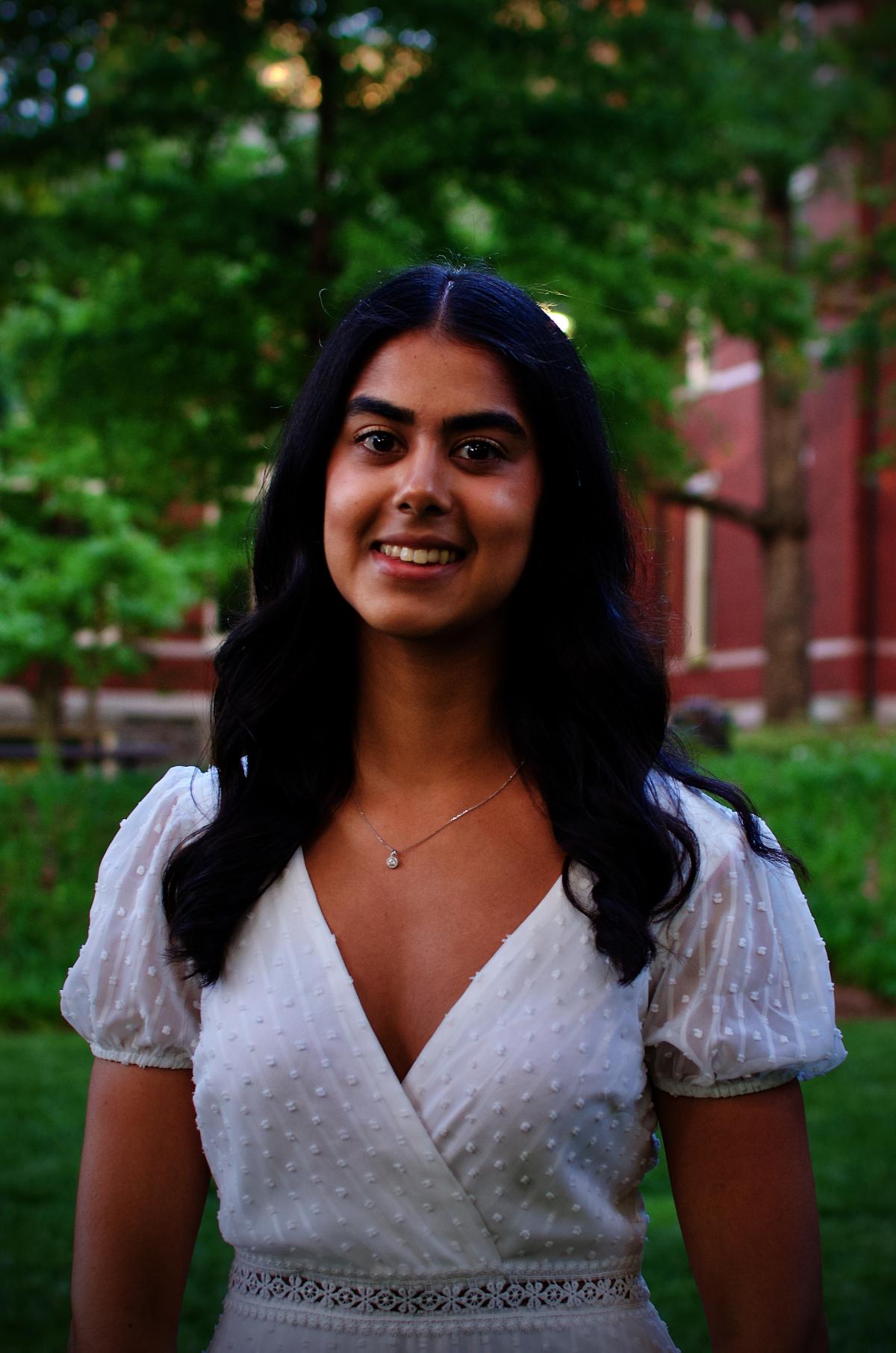
(text and background only visible when logged in)
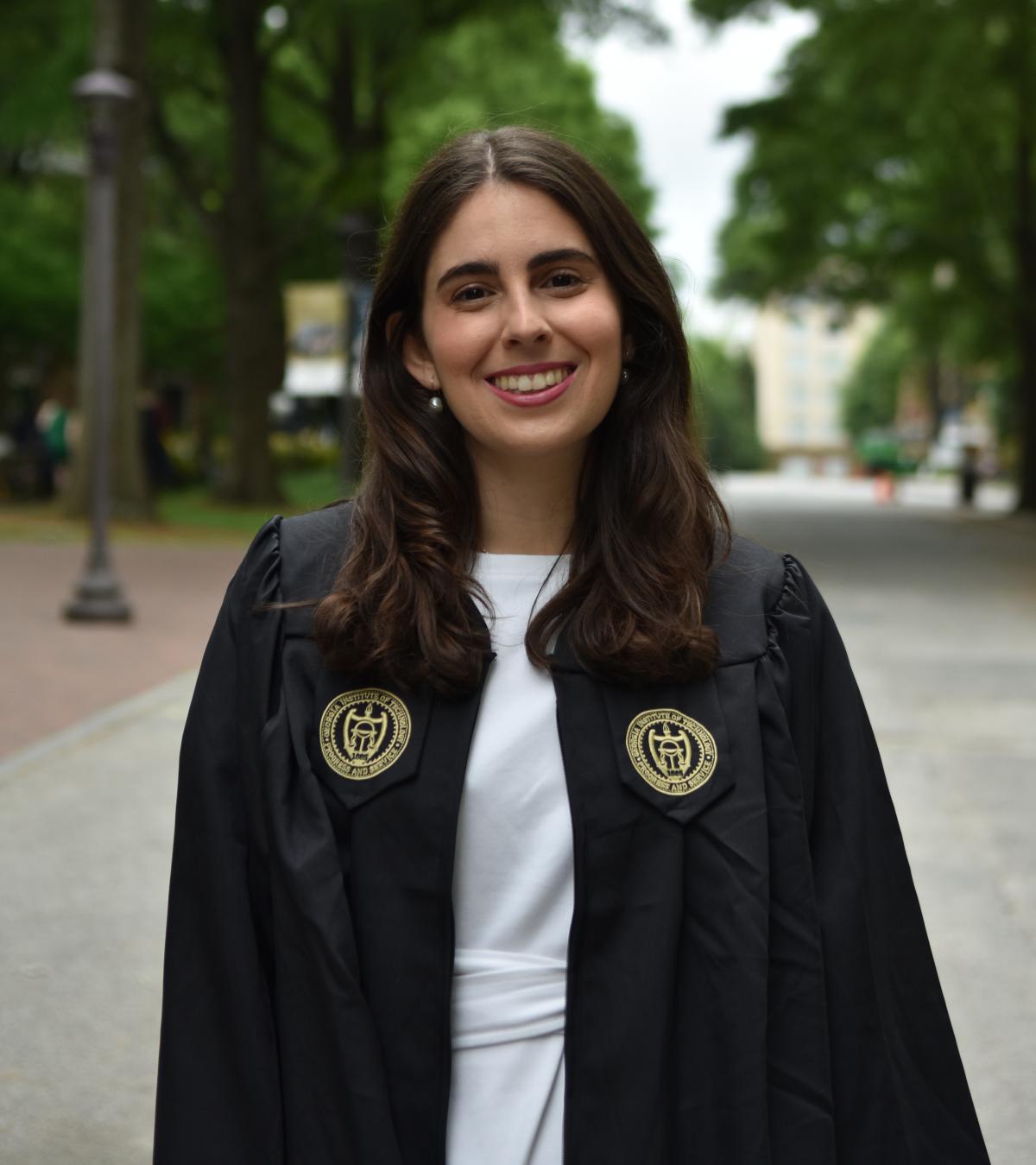
Cayetana Salinas, AE 2024
What is your next adventure?
I'm remaining at Georgia Tech in the BS/MS Program to earn my master’s degree in controls in autonomy with robotics. I'm currently talking to Professor Adam Steinberg and Professor Kelly Griendling, going back and forth, but there's a chance I might work with a new professor. I want to pursue a Ph.D. eventually, and a master's is a step before the Ph.D. that will give me more research experience and more challenging course work. Pursuing a Ph.D. is an opportunity to do cutting-edge research and be at the forefront of the field.
After completing my master's and potentially a Ph.D., I'm determined to enter industry. My goal is to contribute to the next generation of Eurospace, envisioning what it will look like in the next 20 or 30 years. As an international student from Madrid, Spain, I'm ready to bring my diverse perspective to the table.
What about your next adventure are you most looking forward to?
I'm excited about shifting focus and having ownership of a research project because the research that I've done as an undergraduate has been supporting a graduate student. As an undergraduate, I've been involved in a lot of different organizations, you know, doing clubs. And I'm also excited about the courses, just being able to fully choose what classes I want to take and specialize a lot more.
Did you have any previous co-op, internship, or research experience in this area?
I interned in the summer of 2023 at optimAero, a small consulting company specializing in unmanned aerial systems. The company is run by Georgia Tech graduate students. They were Ph.D. students at Georgia Tech, and they started the consulting company in Tachypneic, California. While there, I worked with Archer, which is one of the aero taxi companies developing air taxis for New York City and other big cities. I was able to help with projects within the company, but also work for other companies. So, it was a great way to get more experience in controls and learn a huge variety of things over the course of one summer.
How did your educational experience at Georgia Tech help you to achieve your goals?
Access to research, student organizations, and clubs without any aerospace experience was vital because it gave me the ability to explore various interests. It's pretty unique to Georgia Tech to be able to get involved as early as your first year and get hands-on experience to complement your studies. The classes have been great, and I've had good professors who taught me the foundations, but being able to complement that with hands-on research, clubs, and an internship has been really special. I conducted research in combustion under Professor Steinberg for three semesters, but I was able to explore my interest in controls as well. Being able to try out different fields within aerospace because the curriculum touches on everything, and the research and clubs cover almost every aspect of aerospace engineering.
What advice would you give to an underclassman who would like to follow the same path?
Make connections and stay connected within the School of Aerospace Engineering because that's when opportunities will arise. As a member of SAESAC, I was able to meet many of the faculty and connect with them, as well as many students, through the different initiatives where SAESAC collaborated. We worked with different leaders and organizations, so we ended up finding out about various opportunities just from the connection.
There's a lot of pressure at Georgia Tech, and the culture is competitive. You see people being successful, and you may feel like you’re not doing enough. Don’t let their success negatively influence you. Forge your own path following your passions, get involved, and get connected.
Sabrina Sughi, MS AE 2024
What is your next adventure?
After graduation, I plan to spend a month traveling in the US before returning to Italy to spend quality time with friends and family. During this period, I will also take the opportunity to explore my next steps, whether that involves pursuing a job or a PhD, focusing on space-related research.
I plan to pursue a research path in either orbital mechanics or innovative materials and technologies for space missions. I am currently sending applications for European space programs and PhD programs that align with one of these two topics, with a focus on contributing to European space endeavors
What about your next adventure are you most looking forward to?
Being away from home since August, I cannot wait to return, reunite with my family and friends, and taste my grandmother's lasagna again! I am also excited to see what lies ahead for me and to embark on this new chapter of my life. Since I started school as a child, my routine has always involved lectures, homework, and tests in a pretty straightforward academic path. Now, however, I have numerous opportunities and paths to explore. I cannot deny that it's also a bit scary, but the excitement for something new propels me forward
Did you have any previous co-op, internship, or research experience in this area?
During my previous education at the University of Brescia in Italy, I primarily focused on research projects rather than internships, as they were not common in our degree program. Unfortunately, the two semesters I spent here also didn't allow me to complete an internship, but I was involved in several research projects that confirmed my passion for research and development. For my first master's thesis, I worked on bioprinting living cells, developing hydrogel bioinks, and optimizing the process. I am eager to expand on this topic by exploring space applications, particularly for long-duration missions to Mars. At Tech, I had the opportunity to work on an orbital dynamics special problem, specifically focusing on the dynamics of asteroid CC21 for JAXA's Hayabusa 2 mission. This project sparked a new interest in the aerospace field, shifting my focus from structures and materials to mathematical modeling and problem-solving.
How did your educational experience at Georgia Tech help you to achieve your goals?
Georgia Tech provided me with the opportunity to explore different areas and develop new interests through its wide range of academic offerings. The courses, seminars, and events I attended during my time here gave me a broader and up-to-date perspective on the current trends and exciting developments in the aerospace field.
Furthermore, the facilities available for personal or research projects enhanced my skills. The combination of these resources, alongside the school's prestige, has strengthened my applications and prepared me well for future career opportunities.
What advice would you give to an underclassman who would like to follow the same path?
Take full advantage of everything the School of Aerospace and other departments have to offer. Observe, listen, and absorb everything happening around you to broaden your interests and knowledge. Instead of focusing solely on one interest, stay open to discovering new areas and exploring different subjects. I highly recommend traveling, engaging with, and learning from people from different countries. The network I built here, along with the stories and experiences I gained from each person, shaped my interests and expanded my perspective on space, helping me decide on my future path.
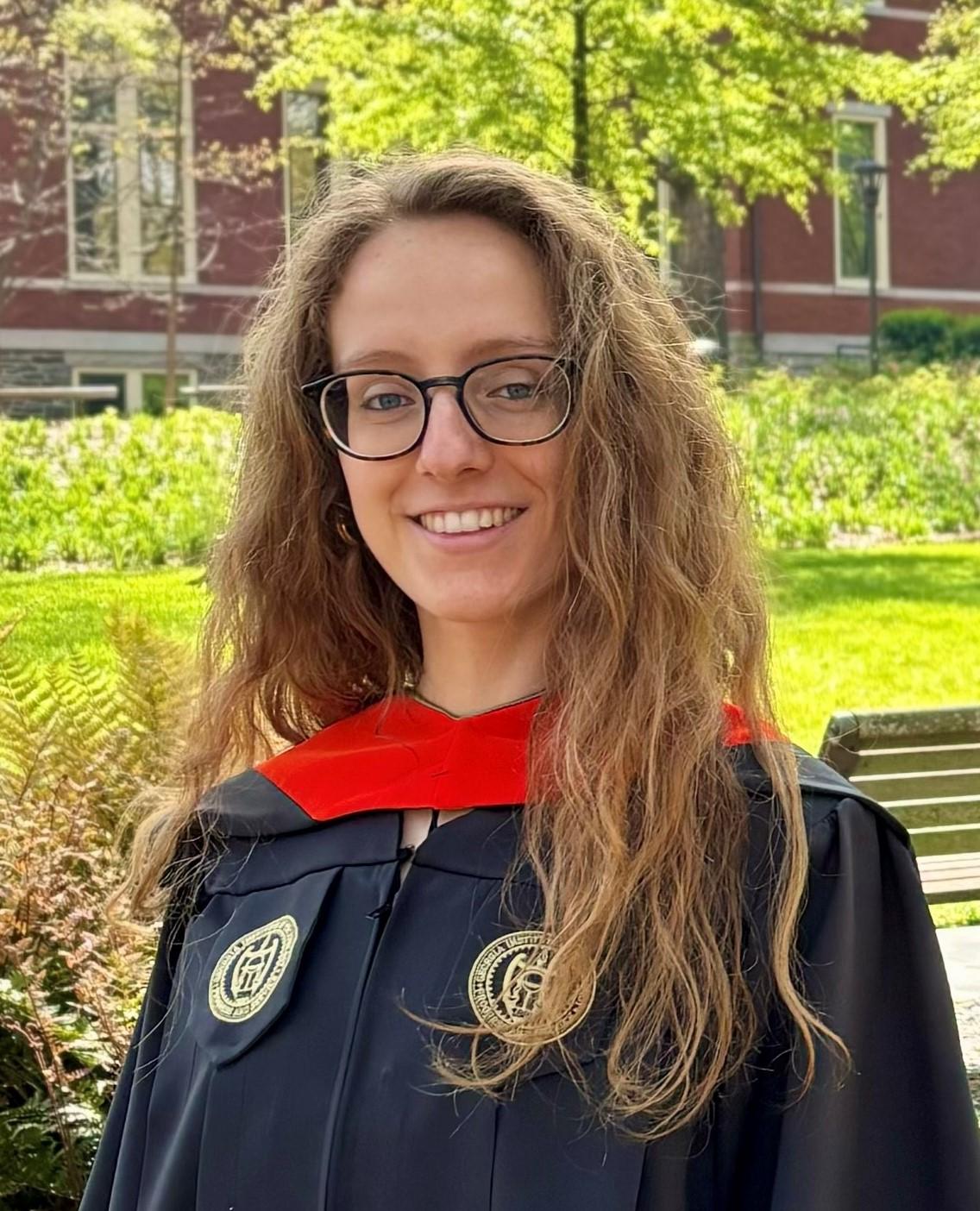
(text and background only visible when logged in)
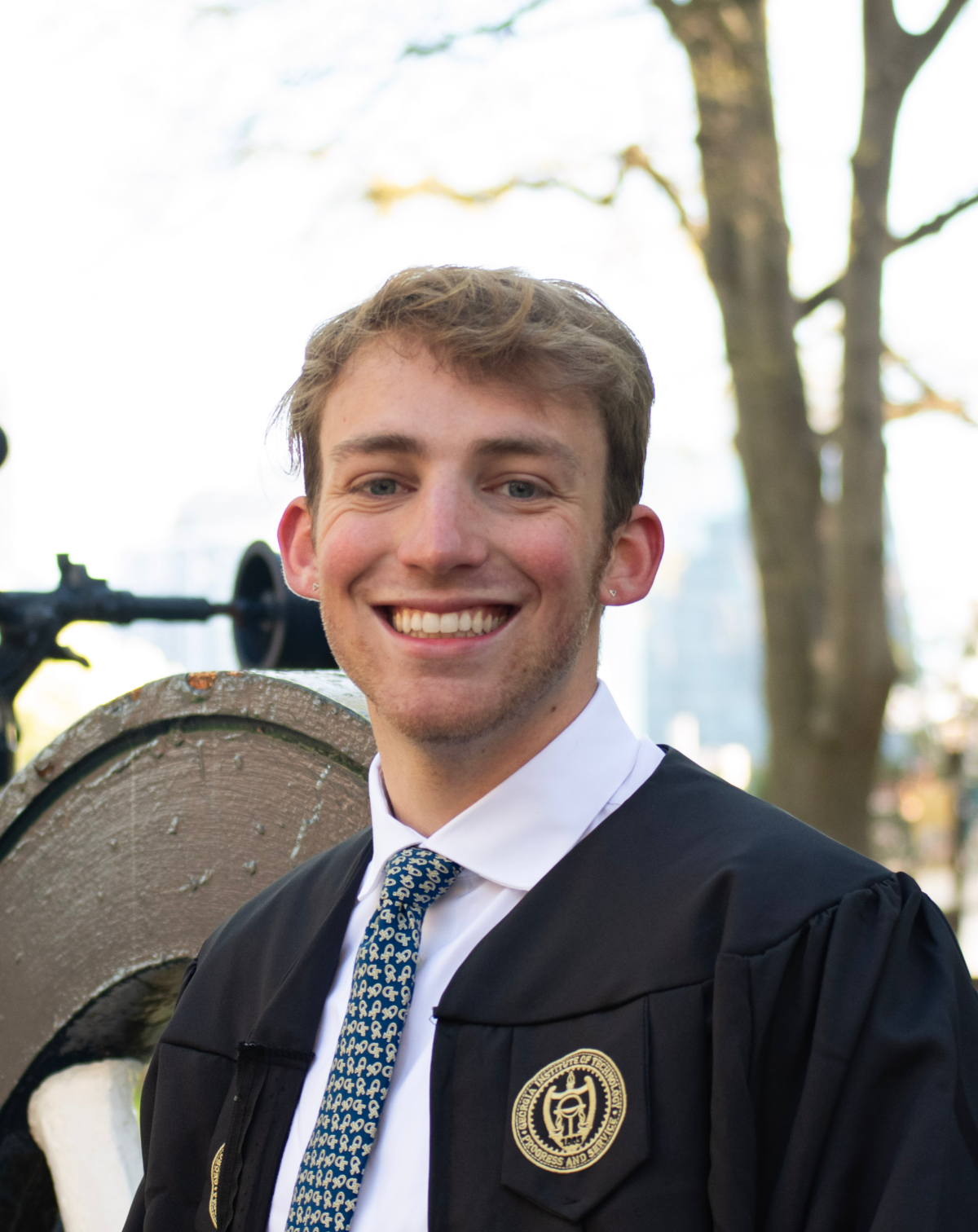
Carter Tegen, AE 2024
What is your next adventure?
I’ll be pursuing my master’s degree working in the Aerothermal Aerothermodynamic Research and Technology Lab with Doctor Ruffin. I’ll also be doing coursework focused on aerodynamics and vehicle design. After I finish my master's, I plan to work in industry and design vehicles.
What about your next adventure are you most looking forward to?
I’m looking forward to connecting what I want to do with my career and aerodynamics. I'm also really excited about the courses. Georgia Tech has some really great professors and courses, so I'm eager to learn from them and to prepare me for my career. Getting my master's will further prepare me for my future work.
Did you have any previous co-op, internship, or research experience in this area?
I've had some awesome internship experiences that have exposed me to the world of aerospace and aerodynamics engineering. I started out getting experience in the Aerospace Systems Design Laboratory (ASDL) in the Civil Aviation Division under Dr. Tejas Puranik. He has since moved on to Boeing, but he gave me good introductory analysis experience. Then, I was able to work with Georgia Tech Off Road for a summer, designing one of their air intake vehicles. It gave me great aerodynamic experience, and eventually, I was able to turn that into my first internship at Hermeus, founded by a Georgia Tech alum, in the spring of my sophomore year. I was an aerodynamics engineer on their vehicle, designing some of that stuff, and that's when I fell in love with the subject. In the summer of 2023, I worked at Anduril Industries doing aerodynamics for their vehicle, and then I returned to Hermeus in the fall doing more aerodynamics engineering on their vehicle.
How did your educational experience at Georgia Tech help you to achieve your goals?
Georgia Tech is really special because of the number of opportunities it presents students. Whenever I wanted to do something or if there was something that interested me, there was always a way I could pursue it, whether that be through a club or research. When I finished my first internship at Hermeus, I was like, wow, high-speed vehicles are super cool, and ASDL happened to have a group and advanced configurations. In addition to having tons of opportunities, we have a phenomenal alumni network. I’ve been a student ambassador for the Alumni Association for about two years. When there have been career opportunities I wanted, I've been able to reach out to GT alums, and they're always happy to support a fellow Georgia Tech student.
What advice would you give to an underclassman who would like to follow the same path?
Get involved early and in a lot of things. I didn’t know what I wanted to do in my career when I first came, but trying out a lot of different things exposed me to what I eventually found as my niche. Georgia Tech has so many opportunities that include engineering. Get involved with engineering organizations early to figure out what you want to do with your career. Also, take advantage of all the other opportunities and people you can meet on the campus who could eventually open doors for you. You will make some really great friends along the way.
Ava Thrasher, MS AE 2024
What is your next adventure?
Just a few weeks after graduation, I will join Georgia Tech as a research engineer in the Space Systems Design Lab. I’ll be working full-time with my current research advisor Dr. John Christian to develop new algorithms for optical space navigation. But, before I start, I’m going to France with my family for a graduation trip.
What about your next adventure are you most looking forward to?
I’m staying here because I love what I’m doing so much and a great opportunity opened up. I’m excited to be working on a new open-source software package called, Software for Optical Navigation and Instrument Calibration (SONIC), which once released as an open-sourced package, will help teams that want to include optical navigation in their space missions. We’ll be providing that service to the research community. Also, we’re working with Johnson Space Center to develop a device called Optical Deep-space Instrument for Navigation (ODIN), which will be able to perform spacecraft state estimation based on the images it takes.
Did you have any previous co-op, internship, or research experience in this area?
In the summer of 2020, I interned remotely with NASA Ames working on fluid dynamics. The following year I interned at MIT’s Lincoln Lab working on rapid prototyping development structures where I helped design a deployable antenna type and tested optical mounts.
I started working with optical navigation in the fall of 2022 with Dr. John Christian. The next year I had the wonderful opportunity to intern with NASA Goddard where I got to work with navigation engineers. It was really eye opening to see what they were actively working on.
I am very lucky in the way that I got to try multiple things in the field with my internships before landing on what I've actually found my true interest and love for, which is optical navigation and image processing for spacecraft navigation specifically.
How did your educational experience at Georgia Tech help you to achieve your goals?
Coming from Ellijay, Georgia you can imagine the culture shock coming to Atlanta. Right off the bat, you’re introduced to the intensity and the rigor that the educational experience at Tech puts you through. It sets you up to be able to solve hard problems, and that’s something you come to appreciate about the AE school once those hard problems become reality.
I’m very appreciative of all the mentors I’ve had along the way. Whether it was the faculty and staff or my own peers, the community was there to help me and give me the resources that I needed to succeed But they’re certainly not going to spoon feed you. Instead, they help you develop your own skillsets and knowledge that will serve you for years to come.
Beyond the culture, there are a lot of opportunities available to you early on in your journey at Tech. For me, it was learning about undergraduate research opportunities with Prof. Glenn Lightsey. My research there allowed me to do the BS/MS program and get a glimpse at research early on. I was able to work on the small satellite program and got to work with a team of undergraduates both in design and fabrication. In the end you get to watch your team’s creation launch from the international space station, which is really exciting. There are so many opportunities like this and they’re becoming more available to more universities, but Georgia Tech is spearheading them. I’m not sure I would have gotten the experience I did anywhere else. I really couldn’t have asked for a better set of mentors coming through Tech.
What advice would you give to an underclassman who would like to follow the same path?
For undergraduate students, looking to get into research specifically, be sure to focus on your studies. Spend time studying, and make time to gain a deep understanding of the material, rather than just trying to make a grade.
But even more importantly, find the subject matter that really gets you excited. Whatever that may be, dive into it and learn as much as you can. Once you start understanding the material up to the point of cutting-edge, state of the art innovation, that is where the research happens.
Learn as much as you can in the field that interests you. That’s going to involve a lot of reading, but it also involves a lot of talking. Talk to people in the field about their work and be ready to ask questions. I’ve been studying and working with optical navigation for two years, but my mentors such as Dr. Christian have decades of experience. One good conversation with a mentor like this can be worth hours of reading. Leaning on these types of people and mentors will help you establish yourself in research and find a path that works for you.
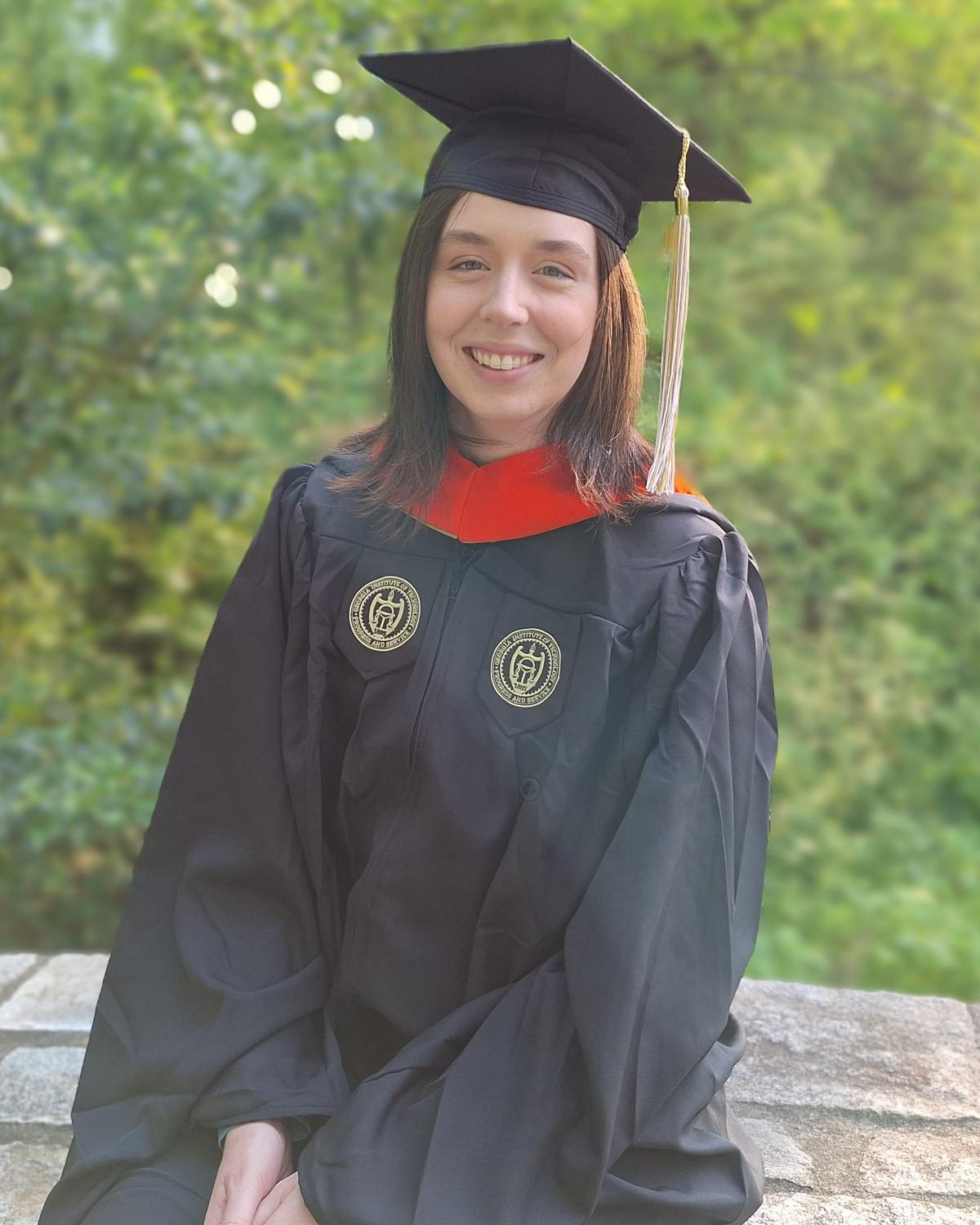
(text and background only visible when logged in)